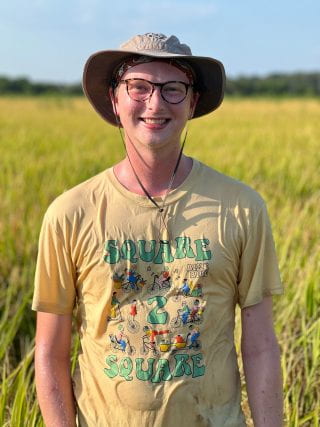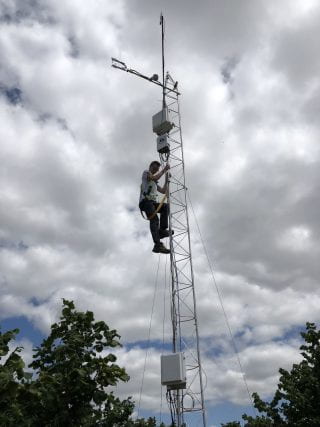Will is a Biological Engineering Ph.D. student in our group, researching how solar-induced chlorophyll fluorescence and visible to near-infrared hyperspectral reflectance can be used to better understand carbon uptake in rice agro-ecosystems in the context of water management strategies and environmental stresses. He was previously a research analyst in our group, working on partitioning eddy covariance methane fluxes to better understand the importance of ebullition (sporadic releases of gas bubbles) as a transport pathway for rice methane emissions, resulting in a publication and open-source code.
M.S. Water Resources Engineering, Oregon State University. Thesis: “Assessing the potential for solar-induced chlorophyll fluorescence to inform evapotranspiration partitioning”, advised by Stephen P. Good, David Noone, and Christopher Still.
B.S. Biological Engineering, University of Arkansas





PUBLICATIONS (Google scholar: https://scholar.google.com/citations?user=s5ZVokkAAAAJ&hl=en&oi=sra)
Pierrat ZA, Magney TS, Richardson WP, Runkle BRK, Diehl JL, Yang X, Woodgate W, Smith WK, Johnston MR, Ginting YRS, Koren G, Albert LP, Kibler CL, Morgan BE, Barnes M, Uscanga A, Devine C, Javadian M, Meza K, Julitta T, Tagliabue G, Dannenberg MP, Antala M, Wong CYS, Santos ALD, Hufkens K, Marrs JK, Stovall AEL, Liu Y, Fisher JB, Gamon JA, Cawse-Nicholson K, (2025). Proximal remote sensing: an essential tool for bridging the gap between high-resolution ecosystem monitoring and global ecology. New Phytologist 246(2) 419-436. https://doi.org/10.1111/nph.20405
Richardson, W.P., Reba, M.L., Runkle, B.R.K. (2022). Modification of a Wavelet-Based Method for Detecting Ebullitive Methane Fluxes in Eddy Covariance Observations: Application at Two Rice Fields. Boundary-Layer Meteorology. 184:71-111. https://doi.org/10.1007/s10546-022-00703-y